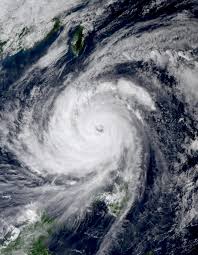The Impact of Typhoon Fung Wong: Latest Updates

Introduction
Typhoon Fung Wong has recently made headlines as it swept across parts of Southeast Asia, causing widespread concern due to its potential for severe weather effects. Understanding typhoons and their impact is crucial, given the increasing frequency and intensity of such weather events in a changing climate. Fung Wong serves as a stark reminder of the pressing challenges posed by natural disasters, particularly in vulnerable regions.
Current Situation
As of this month, Typhoon Fung Wong has been recorded as a category four storm, generating wind speeds of up to 130 miles per hour (209 km/h). The typhoon made landfall in the Philippines and has since moved towards eastern China, prompting emergency alerts and evacuation orders in affected areas. Reports indicate heavy rainfall and dangerous storm surges, particularly in coastal towns, with local authorities on high alert to protect residents.
Impacts and Response
The effects of Typhoon Fung Wong have been felt acutely in regions already struggling with recovery from previous natural disasters. Flash flooding and landslides have been reported, with the National Disaster Risk Reduction and Management Council of the Philippines stating that thousands have been displaced from their homes. Schools and businesses have been closed as a precautionary measure, while emergency services are working tirelessly to assist those in need.
International aid organisations are also gearing up to provide support with food, medical supplies, and shelter as the storm intensifies. Governments are aiming for swift action to ensure that communities are safe and equipped to handle the outcomes of the storm.
Conclusion
The ongoing situation surrounding Typhoon Fung Wong exemplifies the need for robust disaster preparedness and response strategies across affected regions. As the storm continues to develop, it is essential that both local and international communities collaborate to mitigate its effects, protect vulnerable populations, and facilitate recovery efforts. With climate change exacerbating weather patterns, future incidents like Fung Wong may become more frequent, underscoring the urgency for improved forecasting, infrastructure, and public awareness to combat the challenges posed by such natural disasters.









